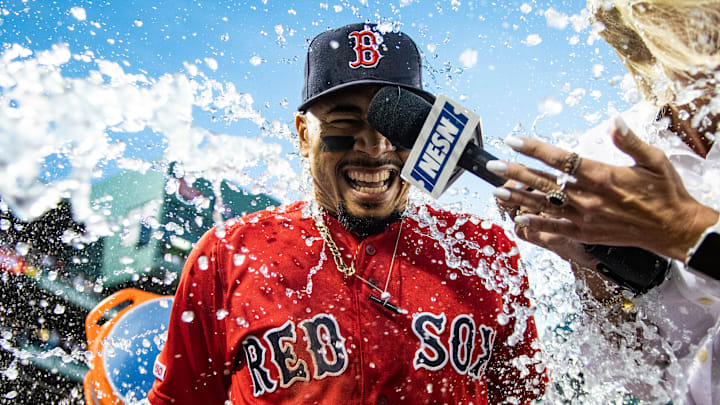No. 4: Mookie Betts, 2018
Is Mookie Betts' 2018 campaign the greatest season for a leadoff hitter of all time? While that question can continue to be debated, Betts' 2018 season deserves to be rated as one of the best individual seasons in Red Sox history. It arguably should have been Betts' 2nd MVP award, but Betts was finally able to get some revenge over Mike Trout with this one, establishing himself as one of the premier talents in the majors with his 2018 season.
Betts led all of baseball with 10.7 WAR, a feat that has only been beaten by 21 individual seasons by position players in all of baseball history. Let me say that again: at age 25, Mookie Betts had one of the greatest individual seasons in all of baseball history (this should have been unanimous, but Mike Trout and J.D. Martinez both snagged a first-place vote apiece). Betts ended up with an OPS+ of 186 and a career-best OPS of 1.078, on the way to a 30/30 season for Betts, while he also only committed one error in the field all season. Pair that with the greatest season in Red Sox team history, and you could make a case that this Betts season should be higher on the list. Who knows, time may work in favor of 2018 Mookie Betts, but for right now, sitting number four on this list is the right spot for it.
